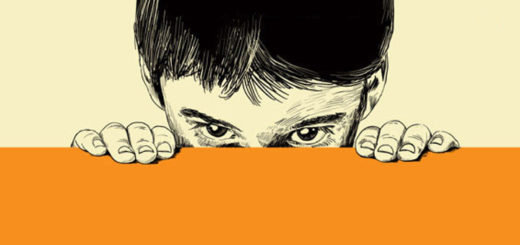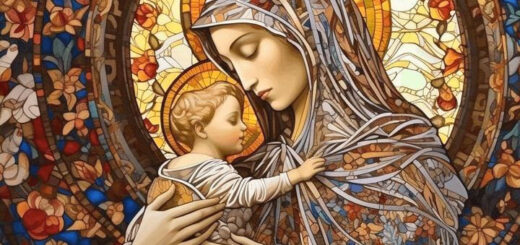Coming Out syndrome. The long journey to be oneself
Text by Lori Heine, published on Whosoever (United States) on March 1, 2013. Freely translated by the volunteers of the Gionata project.*
As many of us know, making out is never a single moment, but a journey. Sometimes, a long and tiring journey. We can find ourselves postponing, to hesitate, paralyzed by the fear of that crucial step, especially with people who really count for us.
Those people who, according to the voices we have heard, would never have accepted. Perhaps, without knowing anything about us, in the past they said hard words, they made jokes or taken positions that have injured us, and we took it for granted that it was impossible to make them change their idea. We convince ourselves that the stereotype we have on them is true. That there will never be room for us in their lives.
But I don't want to say that everyone will react well, nor that there are no risks in revealing who we are. I just want to remember how dangerous it is to let the negative experiences of others decide our destiny.
For years we can live trapped in a double existence, holding our breath, distanced from the people we love, simply because someone has told us that they will never accept us.
Sometimes, those who warn us do it because they want to protect us. But that's not always. There are many reasons why someone may want to scare us. Some have political or religious interests that are strengthened by feeding the division between LGBTQ+ people and their families, their friends, their supporters.
And these interests exist both among conservatives and among the progressives and in the institutions of the State and in those of the Church. Others, however, can be moved by more personal reasons. Perhaps they think that, keeping us away from our parents, in the end they will inherit what would be up to us. Or maybe they fear our talent, and leaving us closed in the shade they hope to prevent us from shining.
However, people are not as predictable as they want to make us believe. I met conservatives who reacted with extraordinary opening and kindness to my coming out, while progressives I believed friends made cruel jokes and moved away from me.
I saw evangelical Christians welcome me with my arms open, and rational atheists turn up my nose with disgust, saying that, in a perfect world, people like me should not exist.
I lived all these experiences on my skin.
Yes, there are still people who do not accept us, who repeat without thinking that you cannot be Christian and be LGBTQ+. But what can we do? Sometimes, unfortunately, nothing. But regardless of how others will react, we can choose to be ourselves. We can live openly, with honesty and dignity.
We can continue to believe, to walk with your head held high, to be the best LGBTQ+ Christian people that we can be. And, over time, we could discover that many of those people end up recreating themselves, perhaps before what we imagine. As for the others, they will have to answer for the hardness of their heart not to us, but to God.
When I was at the university, after spending the first years in a huge and dispersive Arizona State University, I decided to move to a smaller and more welcoming environment: the Grand Canyon College, which was about to obtain university status. And there I found exactly what I hoped.
Among the first people I knew there was Shawnee, one of my peers, also an English student. After graduating, although our lives took different directions, our friendship continued.
Shawnee had grown up in a very conservative Battista family. Her parents had educated her at home before she became a national fashion. He was convinced conservative, heterosexual and, over time, he married a shepherd with whom he was very happy. He was the love of his life.
The summer after our graduation we went together with San Diego to see Olympic skaters on tour. She had a crush on Brian Boitano and declared him openly, sighing every time he saw him. I, on the other hand, had a crush on Katarina Witt. But at the time, when I was still twenty years old, I would never have had the courage to admit it with anyone.
When, just before my thirty -five years, I decided to come out, Shawnee was the person I feared most. How would he react? I imagined her to shell my eyes and scream: “What a disgust! And to think that we lived together for a year! " I imagined that I turned my back forever. In my mind, every possible scenario was catastrophic.
In the end we stared at a dinner. That evening, while we ate, I told her that I had something important to tell her. I dragged that moment throughout the meal, stammering, looking for the right words. Meanwhile, I saw that she became more and more pale, her eyes more and more wide open. I had created a dramatic, almost tragic tension.
And then, finally, I managed to tell him. I prepared me to the worst.
But what I saw was an expression of incredulous relief. "That's all?" he exclaimed. "With all that mystery, I was convinced that I was to say that you had a terminal tumor!"
That evening I learned an important lesson. Often the fear of not being able to tell the truth does more damage than the truth itself. For years I have never had the courage to tell my mother. So, she died without really knowing who I was.
In the last years of his life, when I had now come out with everyone else, I would have liked to do it with her too. But it was too late by now. Alzheimer had taken her away. Not only could he not have understood me, but he didn't even know who I was. He no longer recognized my father.
That monster that we fear throughout our life, that shadow that hides under the bed and frightens us, could be a real threat. Or, when we finally find the courage to face it, we could discover that it was just an harmless dust ball.
In the end, the choice is only ours. We can stay in the Church, despite those who refuse us, or we can leave because we are not welcome. But if we choose the second option, we are allowing those who hate us to be more powerful than the God who loves us.
Shawnee's reaction was not the reason why I chose to remain Christian. Nobody has been. I have never counted the votes to decide whether to stay or leave. My relationship with God through Christ cannot, must not and will never have to depend on anyone, except on God and me.
God welcomed me. And I chose to welcome him in turn. Point.
* Lori Heine is a freelance writer, author of the novel for young adults Good clowns (2018). He edited the blog Born on 9-11 and collaborated with the site Liberty unbound. Native of Phoenix (United States), studied at Grand Canyon University and worked in the insurance sector before devoting himself to writing.
** Whosoever is an Ecumenical American magazine, founded in 1996, dedicated to the spirituality and faith of LGBTQ+people. Its goal is to offer theological reflections, testimonies and resources for those looking for a path of inclusive faith, overcoming the refusal and the discrimination often encountered in traditional religious communities.
Original text: Coming-out-to-Shawnee Syndrome






